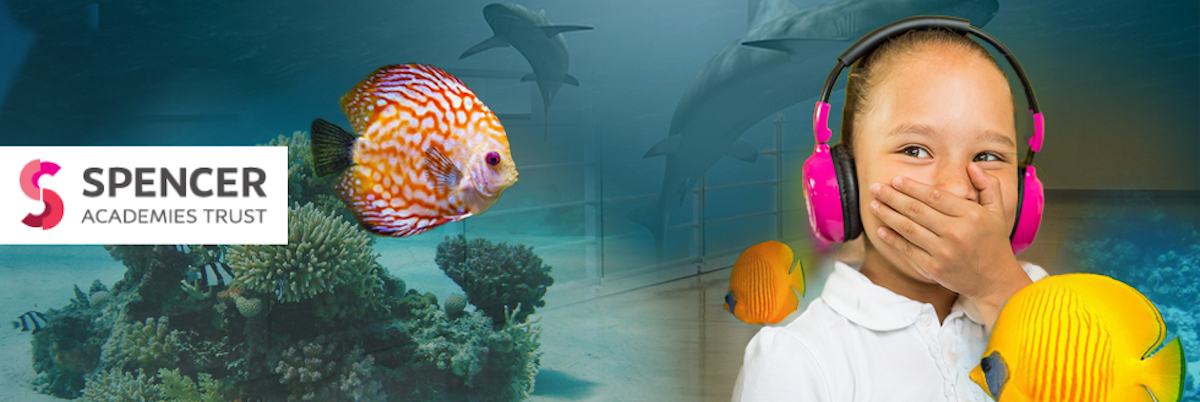
Senior leadership from Chellaston Fields, Wyndham, and Ashwood Spencer, which are all part of the Spencer Academies Trust, explain why they chose to subscribe to now>press>play and how it impacts their pupils.
Their reasons range from extending life experiences and writing opportunities to providing an inclusive curriculum resource for all year groups and abilities.
Chellaston Fields Spencer Academy
We started using now>press>play when Covid restrictions were preventing us from having school trips, or even visitors in, so we wanted to create other opportunities for enrichment experiences. Now we still use it for immersive experiences but also are more focused on having it as an activity which encourages movement as part of our wider strategy of improving physical literacy.
It has been used most effectively as a launch or destination for a new subject area to get the children’s imagination going and give them some additional context.
In terms of unexpected impact, I’d say the nearest example of this is children who may struggle to join in, they really get involved in the sessions.
– Rachel Tunney, Principal, Chellaston Fields Spencer Academy
Wyndham Spencer Academy
We prioritise EdTech as a way of engaging our pupils and providing experiences to them that they may not necessarily get. now>press>play was something different from what we already had in school, an immersive experience that allowed children to work simultaneously, listening to information, and following instructions at an age-appropriate level.
now>press>play has been used across the curriculum and is regularly used by children of all ages. Our children in Year 6 love it as much as our children in FS!!
The specific topics embed curriculum content and allow children to apply learning from the classroom to a different context. The children are always fully engaged in the immersive stories and some teachers use the worksheets and resources within and after the sessions.
Prioritising oracy is key for us as a school and the now>press>play sessions provide opportunities to be curious and talk collaboratively. Our children in EYFS love the familiar Traditional Tales and we have incorporated these into their curriculum.
We have also used the technology as an assistive technology to support children with SEND that struggle with reading. We have recorded texts being read by a teacher which they can then listen to during quiet reading time. It has helped improve the sight reading of some of our children in KS2. We are looking into the use of audiobooks and modelling of worked examples also to use the technology further.
Some of our complex children use this as part of their daily timetable at the end of the day. They see it as a reward but actually, it is extremely regulating, engaging and provides an opportunity for them to listen to and follow instructions (which can be tricky at times for them). One little boy from Year 3 last year was really struggling with his emotional regulation and to stay in class but to see him fully included in the now>press>play, just happy and experiencing a lesson with his peers, was beautiful. This really helped to motivate him and be more successful in school.
– Euan Holden, Vice Principal, Wyndham Spencer Academy
Ashwood Spencer Academy
We recognised that lockdown had affected our children not only academically but also experience-wise. Our children are predominantly from poor income households and so their diet of experiences comes from school.
Once the children returned to school it was apparent that the ongoing restrictions would hinder any external visits. This is when we made the decision to go with now>press>play. We continue to use it to add an extra layer of depth to the writing process we use in school, which has an ‘experience day’ and across the creative curriculum.
Teachers have found that starting a topic with now>press>play has worked well to hook children in and give a wide view of the curriculum area.
We feel that all children have benefitted equally. A surprise is perhaps how those with existing behavioural concerns and SEND have managed to use it with such ease. Right the way through school it has been a huge success and usage is increasing week on week.
– Daniel Millward, Assistant Principal, Ashwood Spencer Academy




